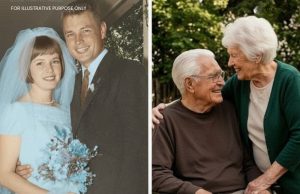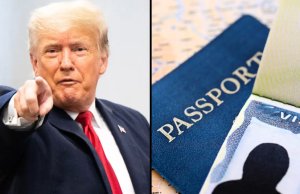
Igor was known in the office as a talented programmer.
The female staff admired him deeply—not only was he quick to resolve technical issues, but his presence brightened the workplace.
At 28, he had served in the army, completed college, and was considered a genuinely good man. Yet, despite these qualities, marriage remained elusive.
His mother, Olga, was especially concerned. “You’re almost 30 already, Igor,” she would sigh. “When will you bring a bride home?” Igor’s usual response was, “When I have a place of my own.”
But owning property wasn’t easy.
“We can’t help you buy a house,” his mother admitted regretfully. “Your father and I live on small pensions. The factory gave us this three-room apartment back in the day—but that was through years of sacrifice.”
Igor understood. Mortgages today are daunting. He had even tried, but the bank deemed his income too low.

His job as a programmer came with side gigs, but they weren’t legal or lucrative enough for a home loan. Still, he dreamed of independence—something beyond his current circumstances.
One day at the supermarket, he bumped into Oleg, an old school friend.
They caught up and decided to sit down for coffee.
Oleg had stayed in the military after his service and now enjoyed a stable salary and a nice apartment through a military housing program.
“Why don’t you consider the army?” Oleg asked. “You’re smart. They pay well, and you’ll get an apartment.”
Igor hesitated—he never saw himself as a military man. “There’s nothing really going on,” Oleg assured him. “Mostly training. No actual conflict.”
Intrigued and increasingly frustrated with his unstable salary, Igor eventually signed a contract with the army.
His parents were uneasy, especially his mother, who feared the uncertainty. “This is life, Mom,” Igor would laugh.

“Things happen, and that’s okay.” He moved to another city, lived in a dorm, and earned nearly double what he made before.
The dream of his own apartment seemed within reach.
To Igor’s surprise, he began to enjoy military life. He traveled for training and started to embrace the structure and purpose.
It was during this time that he met Nastya.
They had a chance encounter on a rainy day when she stumbled and fell into him. They exchanged numbers, and a romance blossomed.
Only later did Igor discover that Nastya was the daughter of Colonel Kapitonov, his commanding officer. At first, he worried she might have been using him.
But Nastya assured him she loved him for who he was. Soon after, she introduced Igor to her father, who gave his blessing with a stern warning: “Don’t hurt my daughter.”
They married and moved into a service apartment, fully furnished with the colonel’s help. Igor felt his life was finally on track.

But things quickly changed. Nastya admitted she couldn’t have children due to a past accident.
Igor accepted this, willing to adopt one day. Then came more revelations: she’d been married twice before, and eventually, Igor found suspicious powder in her purse.
Nastya dismissed it as harmless, but it was clear she was using dr:ugs. Arguments escalated. One day, in a fit of frustration, Igor slapped her.
She called her father, who came storming in, blaming Igor for everything. When Igor suggested a medical test to prove her substance abuse, the colonel refused.
Nastya moved back in with her father, who ordered Igor to stay silent.
Igor filed for divorce and returned to the dorm. Life became increasingly difficult. The colonel turned people against him, and Nastya spread false stories about their relationship. Igor kept quiet, despite the injustice.
Then, tensions rose along the border. Igor’s unit was sent to large-scale military drills, which everyone suspected were a prelude to real conflict.
Back home, Olga and Pyotr were glued to the news, terrified. One day, they received a devastating call: Igor had d!ed of a new virus. They were told not to open the coffin.
The grieving parents were suspicious. Olga insisted Igor had called her the very day he supposedly d!ed—he was fine then.

At the funeral, they defied orders and opened the coffin. It was empty, containing only some clothes, a rock, and a note.
The letter was from Igor. He explained everything—how, after their last phone call, he was attacked in his tent, allegedly on orders from his ex-father-in-law, who feared exposure about Nastya.
To escape a false charge and protect himself, Igor faked his de.ath with help from Oleg and sympathetic doctors. His message ended with an apology and a promise: he would prove his innocence and return someday.















